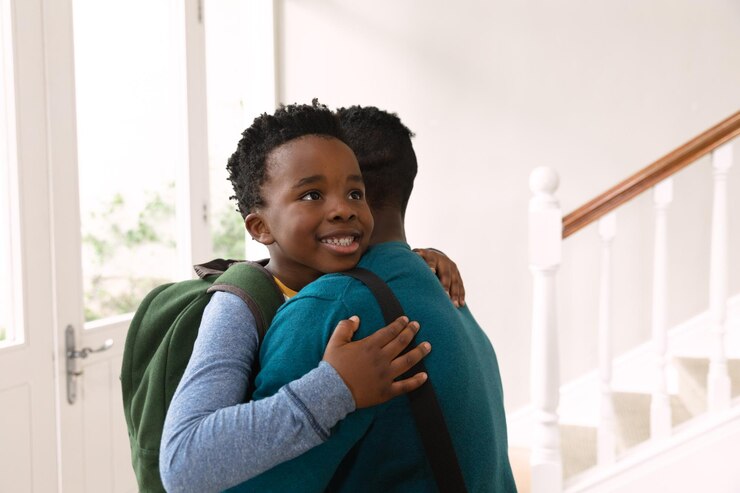In my last post, Legacy in Motion, I shared how I’ve tried to shape legacy not just through effort, but through presence—those early morning runs with my son, showing up tired but intentional, building habits that shape character. But legacy isn’t only built through routine and visible commitment.
One of my children may be what some might describe as “special needs”—though we’ve received no formal diagnosis. As his father, I see the signs. I live the differences daily. Repeating instructions over and over. Navigating emotional meltdowns. Watching him oblivious of the expectations in social settings, even within the walls of our home.
With my daughter, things flow with more ease. She gets things the first time. But with him, every day feels like starting from scratch: “Tidy up the bathroom.” “Unpack your bag after school.” “Remember your lunchbox.” It’s not rebellion. It’s something else. Something deeper. And while I try to correct in love, the reality is—it wears on me. And it wears on my wife too.
There have been moments I’ve had to protect them from each other. Not out of anger, but out of compassion. When she’s overwhelmed by the emotional toll, and he’s acting out in ways she can’t quite decode, I step in—to guard their bond, their peace, and their individual mental health.
Things reached a breaking point when he began preparing for his grammar school entrance exams. The process was emotionally draining—for both of us. He often withdrew when things got hard, and I’ll admit, I doubted his resilience. I wondered if he had the curiosity or the grit to stay in the fight. But I knew the potential was there. And I wasn’t going to let him give up without a fight.
And he made it.

He passed. He earned a place at one of the UK’s top 50 Grammar schools—a proud moment that reminded me how breakthroughs can come quietly, and not always in the ways we expect. I thought we were turning a corner.
But then came the detentions.
Too many. Too frequent. It wasn’t just behavioural—it was like he had a target on his back. Whether it was the pressure to conform, his emotional responses, or just being misunderstood, something didn’t sit right with me. As a father, I couldn’t ignore it. I made the decision to move him from the co-ed school to an all-boys school—a difficult call, but one I hoped would give him a fresh start.
And to a degree, it did. The environment was more structured. He felt safer. The pace and culture seemed more aligned with his personality. Overall, things are better—but the detentions haven’t stopped. Not completely. They’ve just become part of a longer, slower journey.
Here’s the hard truth: the luxury of changing schools again isn’t on the table. Not financially, not emotionally. So I find myself asking: What are my solutions now?
- Do I seek further assessments to better understand what he’s dealing with?
- Do I engage more closely with the school to advocate differently?
- Do I double down on mentoring him myself?
- Do I bring in external support—counselors, coaches, or behavioural specialists?
I don’t have all the answers yet. But what I do know is this: I’m committed. And not because it’s easy—but because it matters. There are days I feel helpless. Days I question if I’m doing enough. I’m deeply thankful for my wife. She carries emotional weight with such grace. We process things differently, but we’re on the same team, trying to learn, adjust, protect, and build—together.

Parenting a child who doesn’t fit the standard mould is a lesson in humility. It comes with deep love and quiet sorrow. It means advocating harder, praying more, and celebrating victories others may never notice. It means holding space for slow progress, for missed steps, and for moments that feel like setbacks but are actually shaping character. It strips you of your ego and your assumptions. It teaches you that milestones are not one-size-fits-all. That love must stretch, evolve, and endure. That legacy isn’t just what you build—it’s what you fight to protect, day after day.
There are moments I still see the spark in him. Glimpses of the courage I once doubted. Moments of curiosity. Moments where I know the hard work are not in vain. And when I see him trying—however imperfectly—I look into his eyes and I see what the world might not: his resilience, his courage, and his quiet strength. Some days, it’s buried deep. But it’s there. And I choose to believe in it and so I find the strength to try too.
To every father navigating a child’s unseen battles: you are not alone. You may feel unsure, worn out, or even helpless—but your consistent love is doing more than you know. Your child might not meet expectations in the ways others expect, but they are not broken. They are becoming. And what they need more than perfection is your faith, your presence, and a love that won’t quit. Your belief, your decision not to give up, ever so crucial!
This is the quiet fight. And we are still in it—hopeful, learning, adapting, and praying that in the end, love will have shaped something beautiful.





